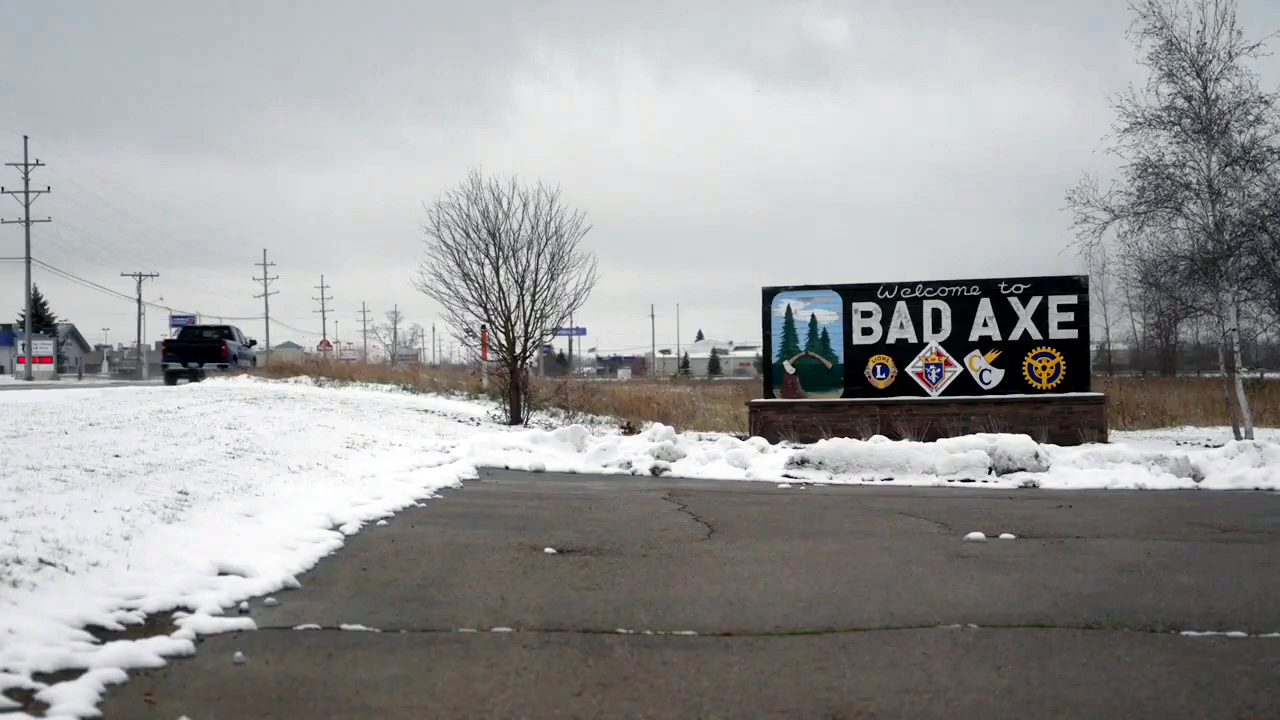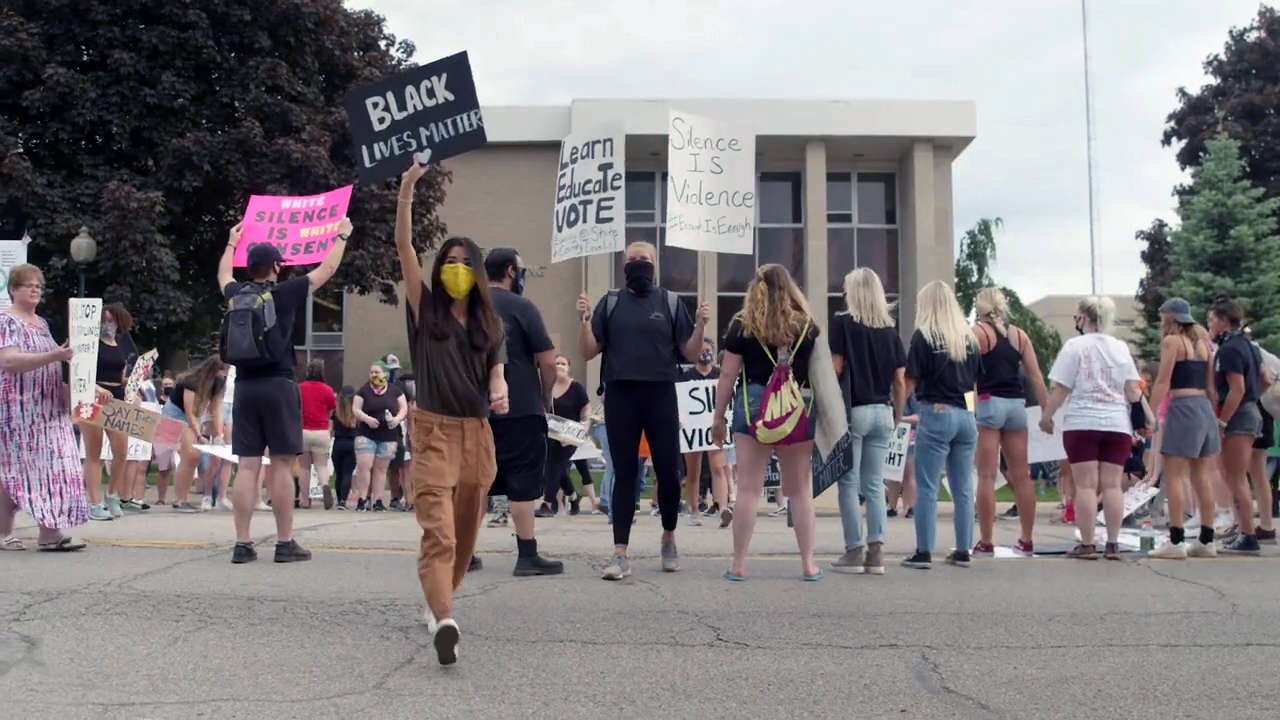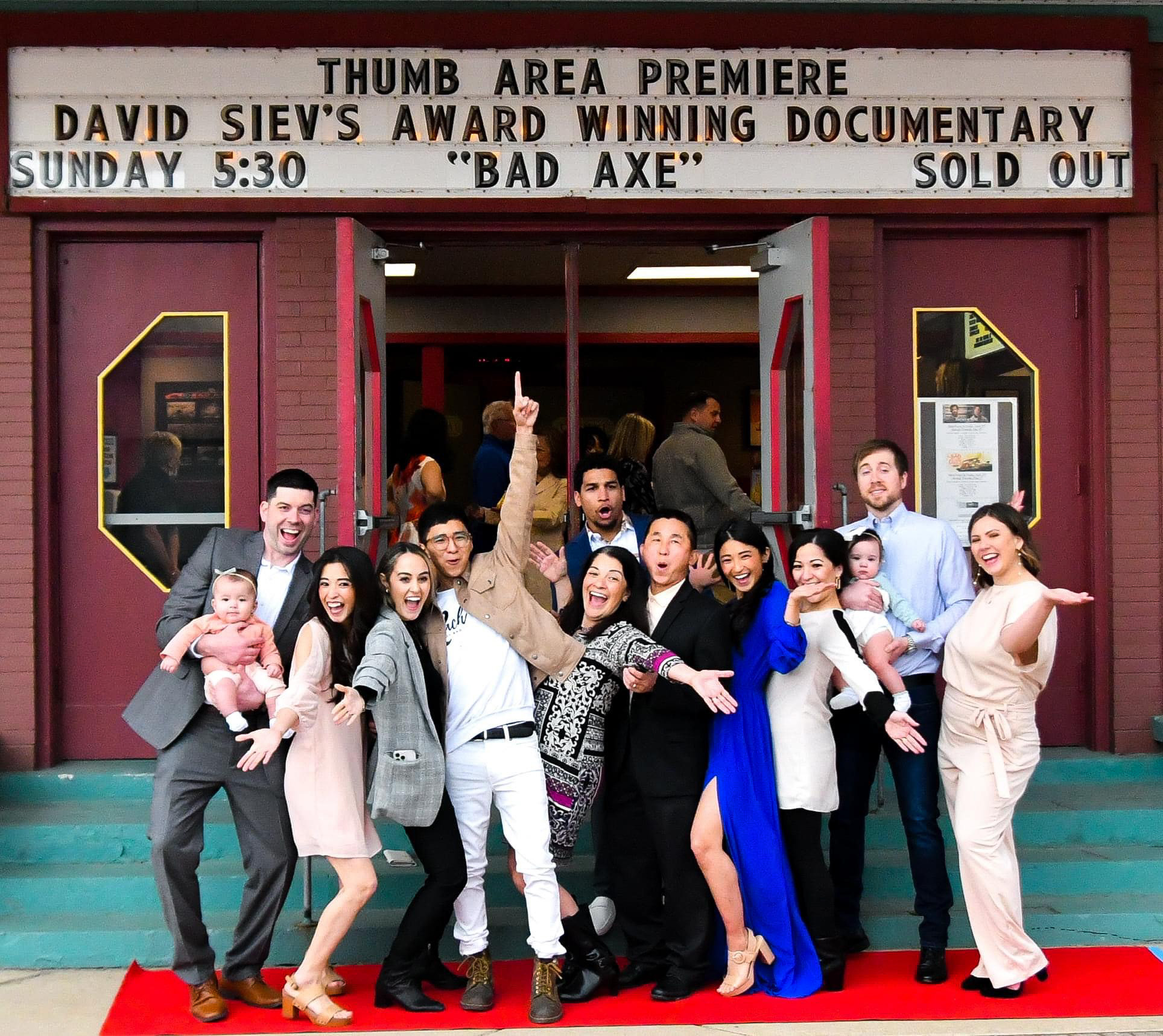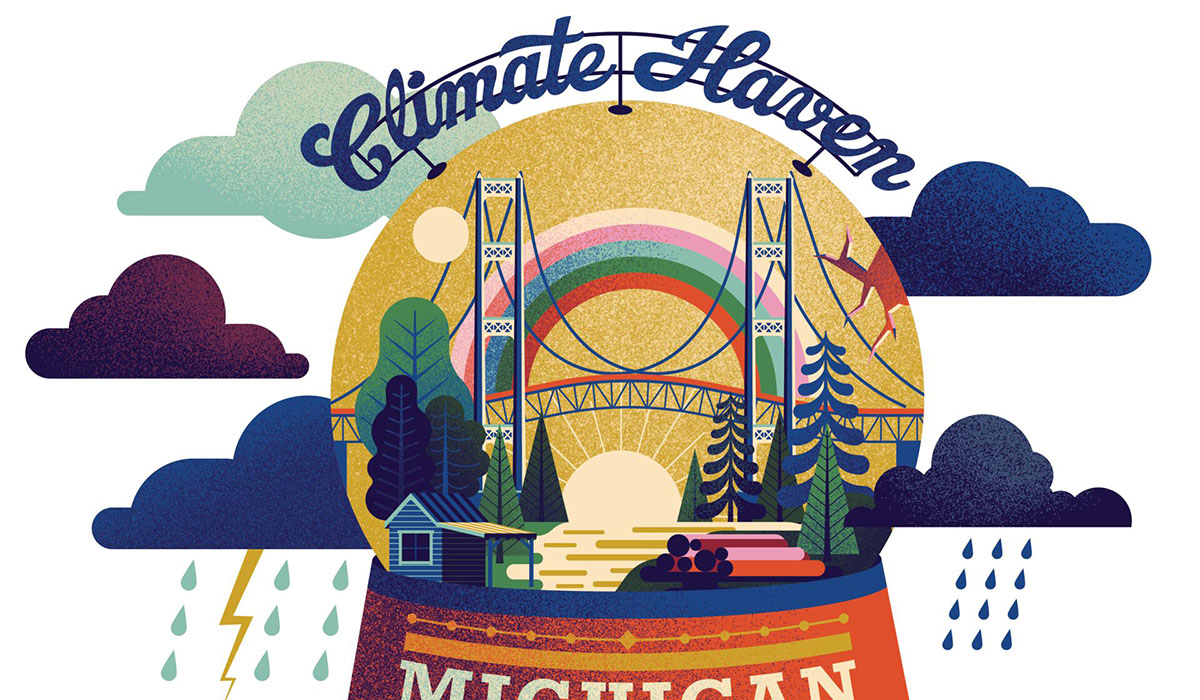Dear Bad Axe
•
Photo courtesy of David Siev
Filmmaker David Siev, ’15, always knew he wanted to tell his family’s story.
Born and raised in rural Bad Axe, Michigan, David watched as his parents worked tirelessly to make their family restaurant successful, hearing all the while of his father’s past in Cambodia and how he came to America as a refugee. He heard the microaggressions directed at him and listened to how his family spoke of their unconditional love for Bad Axe, a small town in the Thumb of the mitten state about 150 miles north of Ann Arbor. He watched as his older sister, Jaclyn, ’11, left for the University of Michigan before he pursued his own education there, followed by his younger sister, Raquel, ’20.
But after graduation, David chose to leave Bad Axe behind for Los Angeles and then New York City until 2020 when news of a deadly pandemic propelled him home.
That’s when he chose to hit record and document life in a global pandemic.
What resulted was an award-winning documentary named after the small town. But “Bad Axe” isn’t just a film about a restaurant-owning American family trying to keep their doors open amid COVID-19 pandemic restrictions. It’s an emotionally stirring, intimate story of PTSD, intergenerational trauma, polarizing politics, racism, and what it means to love a place that doesn’t always love you back.

Intergenerational Trauma
David captured their family restaurant, Rachel’s, as they shifted to to-go orders, balanced their too-low cash drawer, and kept a close eye on the news. He documented moments everyone had during lockdown: living room birthday parties, overdue haircuts, and the fabrication of homemade masks. What he didn’t realize is that he’d capture his father’s story from a new angle as reluctant time away from the restaurant — for the first time in over 20 years — forced him to confront the traumatic past he’d long ignored.
“You know, I am scared to death about this pandemic. I never get that scared during the Cambodian Killing Field as what I am today,” Chun, David’s father, says in the film.
On April 17, 1975, a new government “full of hate and anger,” according to Chun, took control of Cambodia, forced families into the countryside for slave labor, and killed anyone who resisted — resulting in over 2 million deaths at the hands of the Khmer Rouge.
Chun was 15 years old when his family was wrenched from their home, marching for weeks with little food, water, or assurance of survival. He remembers being beaten, starved, tortured, and watching countless others be killed. But after a perilous, three-year journey that included the loss of his father, Chun’s mother and her six children landed as refugees in Romeo, Michigan, and began a new life.
There, Chun met his wife, Rachel, and together they started a family, ran a taekwondo studio, opened a donut shop, and eventually established Rachel’s, a Bad Axe staple for more than 25 years.
To avoid closing under pandemic restrictions, Jaclyn decided to run the restaurant and the siblings sent their parents home to reduce their potential COVID-19 exposures, leaving Chun with more free time than he ever had before. David says this free time forced Chun to confront his mental health as past traumas revealed themselves in new ways. And while some Bad Axe residents knew Chun was a Cambodian refugee or had heard some of his “crazy stories,” they didn’t know of the depth of adversity he’d faced.
“I don’t think people in our community were aware of how those stories and his upbringing of surviving a genocide has affected the father he is, the businessman he is, and the person he is,” David says. “These stories have had a true effect on who he is and how he has raised his children.”
In “Bad Axe,” Chun admits he has a problem with anger and likely struggles with PTSD, while reflecting on the moments of fatherhood that he’s not proud of. It was important to David to explore the role of intergenerational trauma in his family’s story, saying this reckoning has been “healing in so many ways.” He says he’s always looking to connect to his identity but to do that, he must first look to the past — his, and his family’s.
“Yes, intergenerational trauma [gets passed down] and that’s something we have to reckon with, and recognize, and talk about, and deal with. But we can also embrace what else gets passed along with that — that is resilience, and that is hope. And all of that encompasses who we are as people,” David says.

Black Lives Matter
The Sievs faced microaggressions throughout their lives, which worsened during the pandemic.
In the documentary, Chun tells a story of being yelled at in a Walmart parking lot to “go back where you came from” for wearing a mask.
Though the family rarely touted their personal or political beliefs, George Floyd’s murder and the rise of the Black Lives Matter movement changed everything — especially when they heard there would be a protest in their small town.
Since their opening, Rachel’s Facebook profile picture remained unchanged until June 2, 2020, when the photo of the green and gold sign out front was replaced with a black square, the hashtag #blackouttuesday, and a link to resources for supporting the Black Lives Matter movement.
Below, one user’s comment still reads, “#whiteoutwednesday.”
As the siblings and their significant others planned to attend the local Black Lives Matter protest, Chun expressed his concern to his wife.
“Why now, all of a sudden, you just want to stick your head out to be the — might be the target?” he asks her in the film.
However, the family knew this was not a time to sit idly by, but a time for action.
“We were all concerned about the impact that it might have towards our family and towards the restaurant,”Jaclyn says. “As a family, we all came together, and we all said this is something we are willing to stick our necks out for. This is something we believe in so strongly. That was the point where it was so important to take a stand.”
Since about 90 percent of Bad Axe’s nearly 3,000 residents are white and the county is comprised of mostly conservative voters, Jaclyn didn’t believe more than 20 people would attend the protest.
But as the camera followed the Siev siblings, Rachel’s employees, and friends to downtown Bad Axe, David documented what they’d never anticipated: nearly 200 citizens carrying signs, sharing stories, and marching in defense of Black lives.
And, in stark contrast to the support, three men armed with rifles and shielded faces, delivering Nazi salutes and calling Raquel a racial slur.
“I was overcome with so much anger and passion in that moment. How dare you come and ruin something so beautiful in this community?” Jaclyn says.
The Siev family does not regret taking a firm stance in support of Black Lives Matter, but the public choice did not come without repercussions. They received angry letters in the mail, threatening phone calls, and comments on social media. The reaction made them reflect on why staying in Bad Axe was so important to them, even in the most challenging moments.
“When you change one person, it doesn’t just change one person. That one person has a ripple effect, forever,” Jaclyn says. “It might take a long time, but it is going to ripple, and it is what’s going to start making us come together and heal together as a community and a country.”

A Love Letter to Bad Axe
Today, “Bad Axe” has earned high praise from critics, national attention, and dozens of awards and nominations including the shortlist for the Oscars. But the film didn’t always have an outpouring of support.
Before the documentary was complete, David released a fundraising trailer and watched as the film he’d spent hundreds of hours working on received a flood of backlash.
The true test came when the local two-screen Bad Axe theater began to show the film, complete with Q&As with the filmmaker himself.
David said the attendees included people who left hateful comments on social media and people who approached his mother to tell them they wouldn’t be supporting their family restaurant anymore, but the response was more positive than he could have hoped — calling the moment “the power of cinema.”
“Many, many people would raise their hands, and they said, ‘I may not agree with your family politically, but thank you so much for opening my eyes to an experience that I didn’t know existed in Bad Axe, Michigan.’
“That alone right there . . . that was really powerful to witness, that people were willing to have real conversations in that room after watching the film. That’s how change starts. Change happens really slowly, but it happens one person, one conversation at a time.”
There is a moment in the film where Chun asks his son “Why are you doing this?” and David responds, “This is my love letter to Bad Axe.” But David says he isn’t sure he knew just how true that was at the time.
“Throughout the process of making this, I did realize it was a love letter to Bad Axe — a love letter to this imperfect community that I have an unconditional love for and that I’m ultimately thankful for how it’s made me who I am today, how it’s made my family who I am today.
“I would not have my upbringing anywhere else if I could do it over again. I would choose Bad Axe a million times over because I truly believe that it is what has made this bond within our family so strong,” he says.
“My family is Bad Axe, and Bad Axe is my family.”
KATHERINE FIORILLO is the editor of Michigan Alum.



